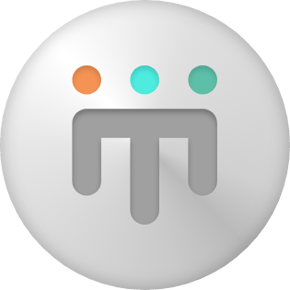What’s the value of a human? For starters, you can’t put it on a balance sheet.
Most people in your organisation are amazed by what AI can do, and rightly so! AI’s ability to analyse information, draft emails and write code is incredible. It’s changing how we work faster than you can say ‘ChatG—’
But research over the past 30 years suggests that any technology integrated into the workplace works best when it’s used to support people, not replace them.
For example, US researchers in 2002 discovered law firms that installed ‘information technology’ (computer systems and networks) didn’t improve productivity by much. Real change happened when those firms integrated the technology with meaningful people changes, like decentralising decision-making and giving employees more responsibility.
So even back then, the technology worked best when people were empowered to use it. Without that human element, there wasn’t an upside. There’s no doubt AI has the potential to support business growth, but it won’t get there without humans at the centre.
Because AI can’t lead with integrity. It can’t build trust, navigate conflict or show compassion when someone’s struggling. Those are human responsibilities. They’re also the foundation of healthy workplace cultures. So like other departments, HR leaders need to embrace AI instead of resisting it and double down on what makes us human.
In this blog, we’ll explore why data doesn’t equal human understanding, how to build culture with AI and the importance of people in your AI strategy.
The humAIn approach
AI is brilliant at spotting patterns and making predictions.
What looks like “intelligence” is just pattern recognition, learning from inputs and generating recommendations based on probability. And it’s darn good at that. But not everything important shows up in the numbers. It’s people who bring the context, nuance and EQ to a workplace.
A recent MIT study on accounting firms using ChatGPT shows this. They found that 37 per cent of employees were more productive on writing tasks, and the biggest boost came for junior employees. AI handled the first drafts, freeing people to focus on higher thinking and decision-making. Instead of replacing employees, the technology enhanced their abilities and helped close skill gaps. Employees also reported greater satisfaction, as time spent on tedious tasks shifted toward more meaningful work.
So it’s important for HR to pursue AI while also paying attention to people and design a human integrated AI strategy. But before AI spreads into every corner of the workplace, it’s important to note the risks in HR too.
Create culture don’t parse it
HR teams are using AI in smart and helpful ways, like writing job descriptions, screening candidates and writing job applications. But with that, new challenges are starting to emerge. If employers are using ChatGPT, why can’t candidates? Is there a double standard?
Whether you like it or not, candidates are using AI to tailor their responses based on industry metrics and rules. Organisations are receiving a wave of identical applications that technically tick all the boxes, but at the same time miss the actual person behind the resume.
That’s the paradox of AI, it increases efficiency but often at the cost of making something feel flat and robotic. It can smooth out the very qualities that make someone the right fit for your organisation. That’s why when you’re dealing with someone’s career, it’s always helpful to have a human on the other side, not a machine.
That’s why HR must also consider how AI shapes your culture and how employees experience that culture.
AI and human culture
The real success of AI integration starts with people. If employees feel safe to experiment and if they trust that leadership is genuinely supportive, then innovation can thrive.
AI can handle routine tasks and even help validate decisions, but only humans can bring empathy, creativity and emotional intelligence to an organisation. Putting people first might make things feel slower at the start but it lays the groundwork for lasting, meaningful progress.
So, how can you use AI to elevate what people already do best?
Investing in people, not just AI tools. What matters is helping people develop the mindset and habits to grow. Research shows that employees with grit and ambition are more resilient.
You need to rethink how work gets done. Throwing AI into existing workflows might bring small gains, but that’s not where the real impact lies. To get the best out of people with AI, you need to redesign jobs around what each does best. Let the tech handle the heavy, repetitive stuff. Free up HR for the work only humans can do, think freely, solve complex problems and build relationships. For example, most banks around the world now use AI to process loans and so tellers can advise clients.
The other thing you can do is double down on one of the hallmarks of being human, curiosity. Get employees involved in the integration process by asking how AI could improve their day-to-day. Because when employees help design AI, they’re more likely to support and use it.
As automation accelerates, it’s emotional intelligence that will continue to distinguish great employees. So, as you bring AI further into your workplaces, remember to balance integration with humanity. The long game isn’t about replacing people. It’s about reimagining what people are capable of when they’re supported by the right technology.
About us
Martian Logic helps HR teams design AI strategies that put people first. Our HRIS gives you the tools to integrate AI without losing the human element, so innovation moves faster and culture stays strong. From redesigning workflows to embedding feedback and recognition, we help you make sure AI supports your people, not sidelines them. Whether you're rethinking hiring, performance, or employee experience, we make it easier to lead with empathy and intelligence. Ready to build an AI-powered culture that still feels human?







